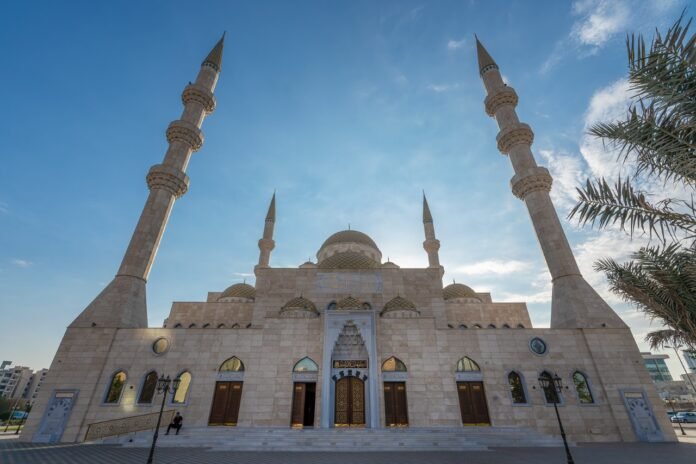Kuwait’s Ministry of Awqaf and Islamic Affairs has issued new directives to mosques nationwide. The directives mandate shorter prayer durations, limited access to indoor prayer halls, and reduced air conditioning use. The measures aim to ease electricity demand amid rising consumption levels.
The Mosques Department in Hawalli Governorate distributed the instructions in coordination with the Ministry of Electricity, Water, and Renewable Energy. The directive is part of a broader nationwide initiative to conserve energy. This initiative also includes scheduled power cuts at mosques across all six governorates starting this week.
Under the new rules, mosques must keep indoor prayer halls closed during the five daily prayers. Instead, worshippers are required to perform prayers in outdoor courtyards. Indoor halls will only open for Friday prayers. Air conditioning will operate in auto mode at 22°C from Thursday evening until the end of Friday services.
For daily outdoor prayers, any use of air conditioning must remain on auto mode at 25°C. Women’s prayer sections will be closed in most mosques, except those holding religious lectures or classes. In such cases, air conditioning must also be set to 25°C. The sections must be closed immediately after the sessions conclude.
Imams have also been instructed to shorten the interval between the call to prayer (adhan) and the commencement of prayer (iqama). This is particularly for the noon (Dhuhr) and afternoon (Asr) prayers. The actual duration of prayers should be minimized as well.
Additionally, the ministry announced scheduled power cuts in mosques. These include a blackout from 30 minutes after the Dhuhr prayer until 15 minutes before Asr. Another outage will occur from 30 minutes after Asr until 5 p.m.
The directives reflect Kuwait’s growing efforts to manage energy consumption. This is in response to soaring temperatures and increased strain on the national power grid.


